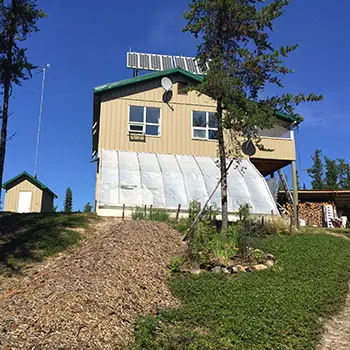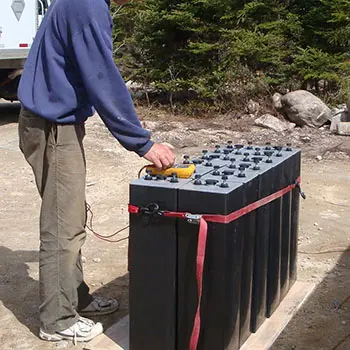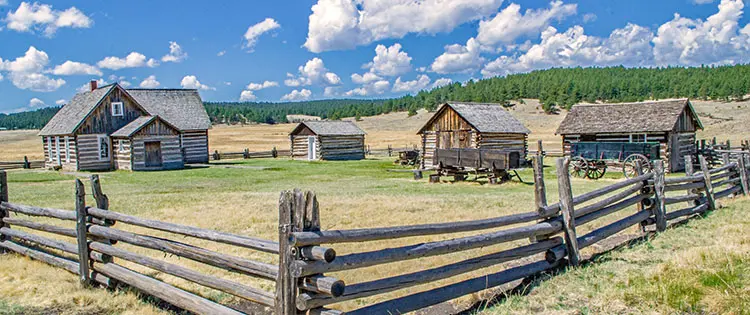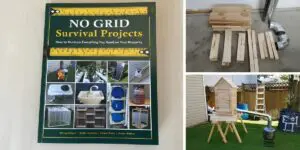Does Government still have power over you if you’re off the grid? Yep! If you think going off-grid is a solution to fly stealth under the government radar, think again. Let me say right up front, as two people who seek maximum freedom, we are in favor of the least amount of government intrusion in our lives. So instead of trying to totally eliminate government interference which is impossible, the goal should be to minimize the interactions.
We’ve been off-grid for over 41 years. We started our homesteading adventure in northern Maine. We are now on our third and final homestead in Nova Scotia. But for those who don’t know, before our move to Nova Scotia, Johanna and I lived on a remote lake 100 miles in the wilderness accessible only by float plane. We didn’t see another human for 6 months at a time.
So with three homesteads in completely different locations, it’s gives us some perspective on how important it is to find a suitable location for your intended endeavors. Check into the zoning laws where you wish to set up a new homestead. Talk to the local municipality and discuss what you want to do. A quick conversation now can alleviate a lot of intervention and conflict down the road.
If you are zoned residential and you’ve got a cow grazing on the front lawn while living next door to the municipal office, that’s a poor choice of location, especially if the bylaw enforcement officer has his/her office window facing the mooing cow.
If your desire is to live off-grid, find locations that not only accept the concept but encourage it. The County in which we live has an electric government car and nearby is a charging station for the public’s use. That’s a pretty good clue local government is tuned into alternative concepts.
Let’s talk about off-grid for a moment. We’ve had some whacky feedback over many years regarding living off-grid. There is an obvious disconnect between what the reality of off-grid means and what some people apparently think it is.
There are some who have the misguided notion that being off-grid equates with a life of deprivation and hardship. They think to be off-grid a person must live in a cave, a tent, or a dirt-floored hut made of sticks, wear animal skins and stalk the kin of those skins for food with bow and arrow. When the hunting fails, chowing down on grubs completes their scenario.
No doubt for some, being off-grid is synonymous with being dirty, living in filth, and having to constantly battle to survive. Their idea of off-grid living seems to also preclude any form of communication is it land line phones, cell phones, sat phones, e-mail or Internet. And there are even some who think being off-grid means a person no longer needs money. Say what? Really?? We’ve heard a lot of weird stuff over the years but that was a topper. Off-grid equates with no need for money. Hmmm.
The definition of off-grid is to live autonomously without the reliance on a utility for power. Nowhere in the definition does it say you have to toil and slave. Nowhere does it say you can’t have any amenities or comforts. Nowhere does it say you have to live on the brink of survival without any means to communicate and nowhere does it state a person no longer needs any money. Granted you don’t need as much but you still need some. Taxes for example are an unavoidable fact of life.
Ahhh, taxes. The government is most definitely involved when it comes to various taxes regardless of whether you are on or off-grid. One has property taxes, perhaps use taxes and sales taxes to contend with. Knowing that fact, how can one minimize the bite if possible? For starters, research the states, provinces, or areas in the world you choose to locate and specifically look at tax rates and what is being taxed.
If you have a larger tract of land, look into favorable taxation programs that incentivize farmland, open spaces, or woodland. Think long and hard about making any commitment to such programs since there may be penalties for failing to follow through with the obligation.
Don’t be afraid to contest a property assessment. There is a process and you have every right to make an issue if you believe your taxes are too high. Make cogent arguments why you think your assessed values are unreasonable. Study neighboring property values to see how they compare to yours. Are the assessors taking into account anything that would subtract from the value?
Regulations such as building codes, building inspections, and zoning laws are other factors to consider. I’m addressing the more typical off-grid homestead here. There may be local exemptions for hunting camps or for buildings under certain square footage for example that might have less government scrutiny but it’s still something that will likely come to the attention of a regulating body.
To sum things up, it makes no difference whether one is on or off-grid when it comes to the influence of government regulations and taxation. But one can research in advance areas more favorable for the intended lifestyle and one can locate themselves off in a setting that doesn’t stick out like a sore thumb that’s in view of every passerby. Having said all that, we can’t imagine living on anything other than an off-grid homestead.
You may also like:
This Homemade Device Can Power Up Your Entire House 7 Days in a Row (Video)
Goats Or Sheep?
How To Make A Pressure Sensor Pad To Know When You Have An Intruder On Your Property
















Hello, Do you have any articles on Homesteading alone? Not everyone who would like this lifestyle has a partner.
Aloha, they recently published this article. https://selfsufficientprojects.com/are-you-a-community-member-or-a-lone-wolf/ make sure you sign up for their newsletter to receive the latest!
Best,
Organic Hawaii Ohana
Hello Phyllis,
I homesteaded alone for some time before getting together with Johanna. I/we have not written any articles on the topic of going it alone. As Organic below mentioned, there was a recent article published on this site you might find helpful. We wish you all the best!
Thanks Organic for jumping in with the link.
I have Ron and Johanna Melchiore’s book, The Self-Sufficient Backyard. A lot of information in that from all their years of off-grid living and how to apply it in a small neighborhood yard.
I have started using some of the gardening techniques by planting fruit trees. Still working on designing the rest.
Hello Bonnie. Thank you so much for the support and kind comment. Johanna and I are so pleased you have found our book of value. We wish you the best as you expand your own homestead. Stay safe!
Great points here!
Thank you Robert for the kind comment. Be safe!
Hello my off grid, dear friends! Was great seeing you guys agin very recently… take care!! We be talking again soon.
Your friend and supporter!!
Jeff P